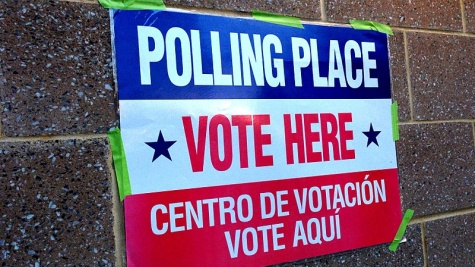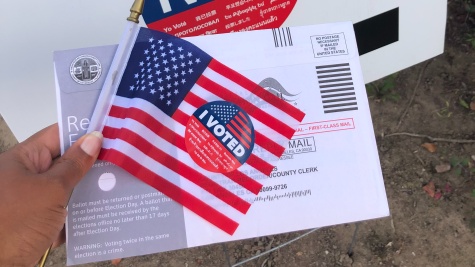Promises and Perils of Mobile Voting
The MIT Election Data and Science Lab helps highlight new research and interesting ideas in election science, and is a proud co-sponsor of the Election Sciences, Reform, & Administration Conference (ESRA).
Anthony Fowler recently presented a paper at the 2019 ESRA conference entitled, “Promises and Perils of Mobile Voting.” Here, he summarizes his analysis from that paper.
Voters are systematically unrepresentative of the eligible electorate. Many reforms intended to increase turnout and improve the representativeness of the voters have had underwhelming results. One understudied reform that could have more transformative effects is mobile voting. At the same time, mobile voting introduces new security risks and concerns about the integrity of elections.
In my study, “Promises and Perils of Mobile Voting,” I assess public trust in online voting and also the effects of mobile voting on participation.
By mobile voting, I’m referring to the possibility that voters would cast their ballots online using a phone or tablet. Voters would download a mobile app, verify their identity by utilizing the camera built into their mobile device, make their electoral choices, and submit their ballot online. If this voting technology were advertised and widely adopted, it could dramatically lower the costs of voting, particularly for certain underrepresented groups.
Focusing on public opinion, I partnered with AP and NORC to implement a nationally representative survey of American’s attitudes about voting technology. Americans are notably less likely to trust that votes are counted accurately under online voting versus other voting technologies, and they’re much less likely to report that they are willing to participate under online voting. Older, poorer, and less educated individuals are particularly less likely to be willing to vote online. Furthermore, Americans’ unwillingness to vote online is not mitigated by assuring them that online votes would be secured by blockchain technology — this actually makes them even less willing to vote online. So Americans are understandably wary of online voting.
Next, I assess the effects of online voting on participation in a real, high-stakes election. In 2018, West Virginia became the first U.S. state to utilize mobile voting in a federal election, allowing it for overseas voters from 24 of its counties. I utilize this trial to assess the likely effects of mobile voting on the size and composition of the voting population. Implementing a differences-in-differences design with individual-level administrative data, I estimate that the ability to vote with a mobile device increased ballot requests by 6–9 percentage points and voter turnout by 3–5 percentage points. These effects are large relative to other electoral reforms, and if anything, they are likely mitigated by the burdensome process through which overseas voters have to request a ballot. So despite public wariness of online voting, people actually utilize it when it’s an option, and many of the voters doing so would not have voted otherwise.
Denver recently conducted a similar trial with mobile voting for overseas voters in a municipal election, and more jurisdictions are considering it for future elections. Mobile voting could significantly expand the voting population, which could be a great thing for democracy. On the other hand, if the public doesn’t trust the electoral process, democracy is all but lost. Researchers and practitioners should pay close attention to the promises and perils of mobile voting as its use becomes more widespread.


